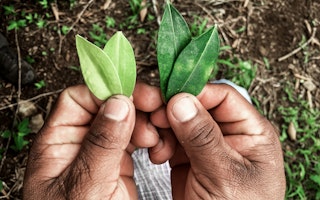A National Debate on Drugs in Uruguay
By Hernan Bonomo
This past June, the President of Uruguay released a policy plan that would legalize marijuana. In a year where leaders from several Latin American countries—including Guatemala, El Salvador, Brazil, Mexico, and Argentina—are openly questioning the “war on drugs,” the Uruguayan plan lays out an ambitious strategy to change the country’s drug policy and curb drug-related violence.
In the plan, the government acknowledges the failure of the current paradigm of criminalization to address drug problems in Uruguayan society. It also denounces the damages that criminalization inflicts on youth already struggling with poverty and other forms of socio-economic exclusion. In response, the policy suggests a battery of new measures that include increased spending on harm reduction services, cracking down on police corruption and strengthening domestic violence laws, among other initiatives.
Under the proposal, access to marijuana would be legal, through a regulated market in which consumers would be able to purchase from either state-run distributors or private, licensed facilities.
This new strategy is seen by the community of drug policy reform activists and government supporters as an important breakthrough in the country’s history of dealing with access to drugs, drug use and consumption. It is also a possible turning point in which policy makers finally acknowledge the need for a public debate on drug policies that currently prioritize marginalization over inclusion, and punishment before treatment. Moreover, this proposal is the hard-won result of the collective efforts of Uruguayan youth activists, NGOs, and politicians.
Among the groups that played an important role in these developments is Prolegal. Part of the constellation of organizations behind the Marijuana Marches in Montevideo, this group of volunteer activists organized the first “Debate Nacional sobre Drogas” (National Drugs Debate) last year. The three-day Montevideo debate took place with the support of Open Society Foundations in August 2011 and attracted more than 500 participants.
Under the slogan, “We turned 200 years old; we can talk about these things,” Prolegal partnered with NGOs El Abrojo and IELSUR to invite lawmakers and other experts in the field for what was termed a “mature conversation” on drug policy reform. The slogan’s metaphor, which plays on the country’s bicentennial as an independent nation, also complemented the group of young activists proving to be “old enough” to challenge the current drug policy paradigm.
After the debate, the governmental body that oversees drug policy, the Junta Nacional de Drogas, invited Prolegal to join a committee tasked with producing recommendations for legislation to decriminalize drugs. The Junta, together with the Ministry for Social Development and the National Institute of Youth, indicated their support to push for discussion of new legislation in 2012.
Despite this recent history of positive engagement, the new strategy on marijuana was a surprise.
“What is really positive is that the announcement compelled all political actors to position themselves towards the issues,” said Ignacio Verrastro, a member of Prolegal. “However, the inclusion of marijuana legalization in a package framed as a strategy for citizen security isn’t good news. This should be framed as an expansion of civil rights, not as a safety issue.”
Ignacio’s concern reflects those of the broader movement for the legalization of marijuana, and is illustrated in Prolegal’s response to the government’s plan: “Marijuana needs to be legalized not only because its prohibition generates more damage than its consumption; we believe it is necessary to vindicate this as part of the rights guaranteed by our Constitution in its 10th article, which states that ‘the private actions of persons that in no way affect the public order nor cause prejudice to others are exempt of the judicial authority.’”
The plan establishes a distinction between the marijuana market and other harder drugs, particularly coca paste, or Paco, a cheap form of cocaine. The government seeks to increase prison terms for trafficking coca paste, which reflects the official view that the majority of violent crimes are associated with this particular substance – alarming some advocates.
From a civil liberties standpoint, the discrepancy between marijuana and Paco evidence what Prolegal considers a contradictory approach to reform. Mr. Verrastro argues that “they continue to stigmatize drug users, by reinforcing an imaginary link between crime and consumption of Paco. Prolegal’s mission is not only to advocate for marijuana legalization, but to challenge how we understand drug issues.”
Uncertainties remain with respect to the reform process. Many in the government complain that critics have reduced a comprehensive strategy for social change to a debate about the legalization of marijuana. Furthermore, the parliament still must turn these concepts into legislation.
But the entire process remains a success for drug policy reformers, many of them young people, who raised the debate and increased public understanding of the issue. As in many other parts of the world, young activists in Uruguay showed in 2011, not only strength in protest, but also in the ability to engage in mature dialogue and cooperation with lawmakers in order to come up with viable alternatives for change. As Victoria Verrastro said, “we must seize this opportunity for change and avoid childish posturing. The possible scenarios we foresee indicate that Uruguay could be home to the most progressive drug legislation in the world.”
Until June 2014, Hernán Bonomo was a program officer for Open Society Foundations Youth Initiative.

